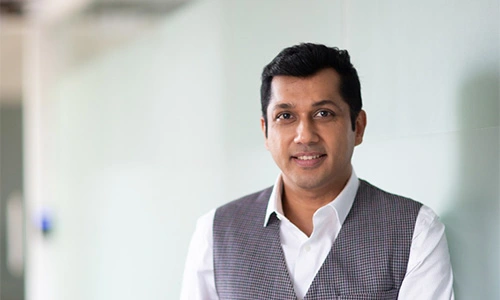Q:Give us a quote that inspires you and you find most relevant for fostering a diverse world.
A:It would be one of the most popular quotes, that I'm sure we have all heard at some point – Unity in Diversity. Every few kilometres, there is such an abundance of diversity, not just in terms of language, but in food habits, cultures, faiths, mannerisms – and this embodies just how diverse India is. We acknowledge, tolerate and even celebrate these differences, and live in harmony together. so, this quote and our entire ethos is a great inspiration and is something to abide by. It's something that remains with me wherever I go.
Q:Can u share a brief success story out of the pages of your life, in the space of DEI
A:For me, the success story that comes to mind is from over a decade back, when I was given the opportunity to expand the focus of diversity in the organisation I was with, from only gender to also enabling people from other segments like LQBTQ+ and PwDs. One notable achievement was the development of a job portal exclusively for people with disabilities. It was a privilege working on it. The second was LGBTQ+ centric sensitisation across levels and offices. This involved changing policies and language to include transgender individuals and employees with same-sex partners. We also attended all the Pride marches across the country, that too as a corporate. All of this in 2012 – a time when Section 377 had not been struck down, and transgender was not an officially recognised gender. And that's something I'm really proud to have been a part of.
Q:How do you identify micro aggression at the workplace
A:It can be tricky to identify micro-aggressions, because they are often considered just 'harmless' humour or casual remarks coming from a place of ignorance. So, people tend to take it lightly, and it can become a very normal part of office interactions. I'm sure we've all seen it happen around us if we really pause and reflect. But I believe at the core, what defines a microaggression is that it is fundamentally discriminatory in nature. I think we need to start talking more about this and how such remarks can genuinely make people feel alienated and unwelcome. Whether it is a generalisation made on the basis of race, or an assumption based on gender, marital status or sexual orientation, a seemingly casual statement can have a huge impact on people's wellbeing.
Q:1 KEY change that you want to see in Corporates to genuinely address DEI challenges
A:One key change that I would want corporates to seriously consider is to never – not in the written form, not in words – imply that a certain person's promotion or hire has been through a diversity quota. We see terms like 'diversity hire' being used freely, but any such phrase has huge implications and would undermine the entire effort of DEI as well as the individual's credibility.
Q:A myth that would want to bust!
A:One myth about diversity I would love to bust, especially in the corporate context, is that DEI is the sole responsibility of the diversity head of an organisation, and that the DEI-led efforts should all be undertaken by under-represented sections. DEI is everyone's duty. It is everyone's responsibility to provide equal opportunity and safe spaces for all to thrive. And by this I do not mean lowered standards or hiring under-qualified people. What I mean is that opportunities and resources should be provided in equal measure so that there is equal representation across levels.
 Hot Seat
Hot Seat
